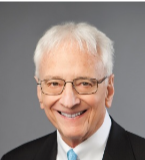Steve Harrison, the co-founder and chairman of Lee Hecht Harrison (now LHH Division of Adecco, Switzerland), was truly passionate about constantly finding small decencies for those around him, those actions that people may not even notice but ultimately do, that are done by individuals who expect nothing in return.
He was an executive you could genuinely say was beloved by those who worked for him. He spent time with them, listened to them, and thought about them and countless ways to do small decencies. He had those in leadership positions in his company do the same.
His forceful answer to the question, “…but Steve, how do you get decency started in an existing organizational structure?” “OBSESSION!!, he would practically shout, and often did, Be the one or find the one that is obsessed with decency, civility, and integrity.”
In our 2021 book, The Decency Code, The Leaders Path to Building Integrity and Trust ©2021 MacGraw Hill, Steve outlined his Principles of Decency. These principles are the ingredients for establishing organic goodness in an existing organizational structure. His principles are a roadmap and paths to much happier employees.
The Harrison Organic Goodness Principles of Civility, Small Decencies, and Happiness.
- Build trust at every opportunity.
- Collaborate genuinely.
- Demonstrate a willingness to sacrifice profits for principle.
- Demonstrate and applaud small decencies – “the exponential power of non-conditional acts of kindness and civility.”
- Establish and promote business decencies, i.e. thoughtful, meaningful gestures, offered in ways small and large that can change a corporate culture for the better.
- Decencies often happen outside of a CEO mandate or corporate policy. They are spontaneous rather than published as values or ethics statements.
- Develop and sustain a coaching culture.
- Genuine recognitions.
- Preserve rich traditions.
- Listen (perhaps the greatest decency of all).
- Model ethical-compliant behavior.
- Respect innovation failure. Learn the lesson failures teach.
- Tell the truth, rather than spinning the truth … the no BS rule.
- Vocalize, publicize, and operationalize core values, ideals, and ethical standards:
o In all scheduled operations and performance reviews
o In all group company functions
o In every new-hire onboarding session
o In every CEO message
o In all compliance and ethics training
o In all executive coaching programs
o In all leadership programs and talent development processes
- Eradicate negative language everywhere, every time.
Steve knew that Organic Goodness produced happiness for those devoted to his Principles of Goodness and practiced them every day for the benefit of others.
| Elements of Organic Goodness | Lexicon of Civility and Simple Decencies |
| Apology | “How can I help you?” |
| Candor | “How nice of you.” |
| Decency | “I can do that.” |
| Empathy | “I’m sorry.” |
| Engagement | “Let me help you.” |
| Honesty | “My pleasure.” |
| Humility | “Please ask me, I’m ready to help.” |
| Openness | “Please forgive me.” |
| Responsiveness | “Thank you.” |
| Transparency | “Yes.” |
| Truthfulness | “You’re welcome.” |
Eradicate Negative Language Everywhere, Every Time.
The technique is simple and direct. Every time you or someone in your group or the audience mentions a negative phrase you immediately and constructively correct that phrase. For example, “Steve, that’s not the way we do it.” Response, “Help me here and tell me what you would do, could do, or should do.” You may feel a little squeamish the first few times you do this, but you’ll notice that your audience, whether it is one person or a hundred people, begins to settle down when you can give them constructive, positive, and helpful alternatives on the spot.
Your Mini Bad News Eradicators and Conversions of Negatives to Positives.
| STOP DOING THIS… | DO/SAY THIS INSTEAD |
| “I don’t want that” | “Here’s what I want…” |
| “No” | “Let’s figure it out” |
| “Never” | “Let’s look for what’s possible” |
| “I won’t do it” | “What I can do is limited…” |
| “I don’t like him” | “What I’d like to see from him is…” |
| “That’s not what I meant” | “What I mean to say is…” |
| “Stop twisting my words” | “Use what I said exactly…” |
| “I hate that” | “Here’s what I want…” |
| “I hate you” | “Let’s find a way to work this out…” |
| “Not that way” | “How about doing/saying/acting this way instead…” |
| “He won’t go for that” | “He’s more likely to go for…” |
| “It’s always no to that approach | “Let’s find a way to get this done…” |
| “I can’t imagine that she will agree to that” | “Here’s what I think she might consider to…” |
| “He’s not done that before” | “Let’s find a new approach…” |
Using “not” makes anything you write or say a lie, and you the liar.
o I’m not a crook.
o I did not have sex with that woman.
o I am not a racist.
o That’s not possible.
o We are not responsible.
Build and maintain your own negative eradication table that you teach or share over time, every day.
See the Bad News Eradicator.
Negative talkers nearby have a limited and repetitive set of verbal bullets. Write them down.
Practice transforming them. Take the initiative and learn to publicly translate negatives into positive small, decent gestures. I often believe in the transition “Here’s a more helpful way to say that…”.
Be helpful, be decent, and suggest specific positive approaches. The people around you will thank you (privately) for helping bullies and negative leadership into a better way of doing things.
Make the conversion habit a simple, but powerful daily, giant small decency that you share everywhere you go.
| A Special Message from Jim Lukaszewski A Tribute to Steve Harrison 1939-2021 |

Steve Harrison, co-founder of Lee Hecht Harrison, later LHH Division of The Adecco Group, died July 10th, 2021. We worked together for more than 30 years beginning in 1995. Our last task together, over 2 ½ years, was to co-author a book published by McGraw Hill in 2020 called The Decency Code, The Leader’s Path to Building Integrity and Trust. His business was outplacement, and his leadership style was of extreme humility, his passion, indeed his obsession, was finding ways to encourage others to perform, to rely on, and to teach others how to bring small decencies into everyone’s life at every opportunity.
His life accomplishments are on exhibit in the thousands of people Steve helped learn how to get back to work.

